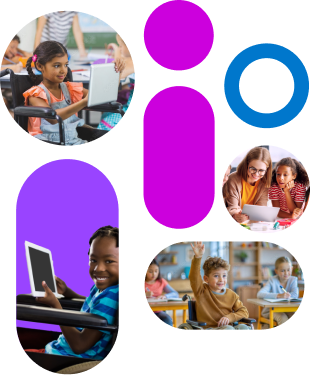Tour Of India: A Major Learning Opportunity for Benetech Africa
Blog post by Martin Kieti, Benetech Program Manager for Africa
Martin’s trip report includes highlights from visits to EMPOWER2022, two schools for students with visual impairments, and EnAble India provide a wealth of knowledge and resources to expand Benetech’s Bookshare program in Africa.
In October, I traveled to India to attend the EMPOWER2022 conference held in Chennai, in the state of Tamil Nadu. I joined fellow Benetech colleagues from India to exhibit and was honored to deliver a plenary speech at the closing ceremony.
As the coordinator of the Africa Forum on Visual Impairment for many years, I was impressed by the large number of participants and exhibitors at EMPOWER2022. Apart from the host country, India has become the country with the largest number of participants at the Africa Forum – a demonstration of the potential collaboration between India and Africa on knowledge and skills transfer in the area of blindness services. EMPOWER2022 was a valuable opportunity to build contacts to expand participation of India at the Africa Forum.
Bookshare and Digital Technologies Enhance Learning for Students with Visual Impairments
After the conference, I attended a half-day Bookshare training session conducted by the Benetech team at the Karna Vidya Foundation in Chennai. Here, twenty-eight young learners with visual impairments, accompanied by their parents, were motivated to pursue science subjects. In addition, the staff demonstrated how to read math using a computer. Parents and learners also had the opportunity to discuss any challenges they faced using Bookshare, an ebook library for people with reading barriers including blindness and low vision. Parental involvement in the mentorship of their children and the use of Bookshare provides a sound strategy for inculcating early readership and the use of digital technologies among learners with visual impairments – a strategy that can be successfully implemented in many countries in Africa.
Digital Technologies Improve Academic Performance and Confidence
Later I traveled to the RDT Inclusive Education School in Ananthapur in the state of Andhra Pradesh and to the Shree Ramana Maharishi Academy for the Blind in Bangalore. These are two of eleven schools that the Benetech India team is collaborating with to increase the use of mainstream digital solutions to prepare learners with visual impairments for an inclusive world of employment and adult life. Learners are introduced at an early age to computers, software, and accessible digital books. In addition, the learners and teachers are trained on using the devices and content, while the Braille presses within the schools are trained on creating accessible digital content.
At the schools, I observed learners using personal laptops as their reading and writing media. Learners as early as Grade Six had set aside their Braille slates and books and reveled in the limitless opportunities provided by mainstream digital technologies. The teachers observed greater personal confidence and improved academic performance among many learners due to the transition to the use of inclusive digital solutions.
Visit Shows Visionary Learning Using Technology Initiative in Action
The visit to the two schools allowed me to see a classic deployment of the Visionary Learning initiative within a developing country. Visionary Learning Using Technology is an initiative launched by ICEVI and a number of partners (with the participation of Benetech) to increase the use of technology in the education of learners with visual impairments. The initiative is built on three pillars: Kit (digital reading and writing devices), Content (accessible digital content), and Confidence (skills and ability to use the devices and content). As the Visionary Learning lead for Africa, my visit to these schools provided new and practical ways of improving ongoing work in continent and will offer opportunities for the exchange of knowledge and learning among implementing institutions in Africa.
Finally, I had the opportunity to visit EnAble India, a nonprofit in Bangalore that provides services for people with visual impairments. Of particular interest was their adapted Information and Computer Technology (ICT) course that has been automated to enable self-paced learning. Several African countries struggle with comprehensive and standardized adapted ICT curriculum for persons with visual impairments. EnAble India has offered to provide technical assistance in the development of ICT courses, starting with Kenya.
The knowledge and contacts that I gained from my colleagues and experts in India will be extremely helpful in expanding similar programs for the blind and visually impaired community in Africa.
You can reach Martin at [email protected]
